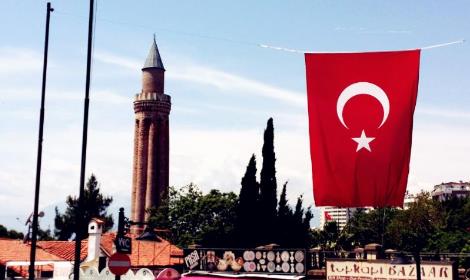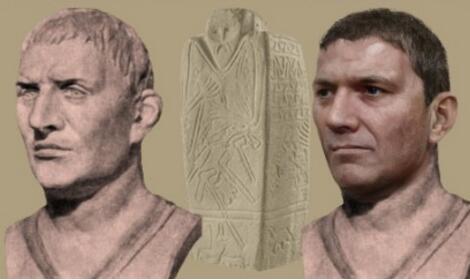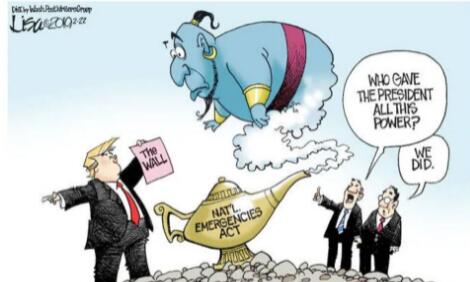历史迷讨论:入侵欧洲的游牧民族匈人到底是什么来头?匈人/匈奴/匈牙利人之辨
正文翻译

(来自历史组)

(来自历史组)
评论翻译
Parianos
They were the Huns: Wandering equine fighters who stormed the early Old World.
他们是匈人,是流浪四方、席卷了早先那个旧世界的马背战士。
The funny thing being, that really is just about all we know about them. Yeah man we do have some second hand accounts about their culture and clues about their ethnic origins and what not, but all that tells us is they are “Mongolians: the prequel”.
(回)有趣的是,我们对他们的了解确实仅限于此。是的,我们确实掌握 了一些关于他们文化的二手资料和关于他们种族起源的线索之类的,但所有这些告诉我们,他们其实是《蒙古人:前传》。
dan carlin said (i think) the Huns were second rate at murder and plunder. the real nomadic horse warriors stayed and fought if out on the steppes, the Huns couldn't compete so they moved west.
(回)(我记得)丹·卡林说过,匈人在杀人和劫掠方面只是二流选手。真正的游牧族马背战士一直留在草原上征战,匈人无力与之竞争,所以他们迁往了西方。
(译注:丹·卡林为美国播客《铁杆历史》主持人)
Well kinda. He was talking about how the steppe tribes often moved in waves, being pushed westward by stronger tribes in the east who then displace the next tribe and so on. It’s a theory that this was the case for the Huns as well.
(回)嗯,算是吧。他谈论的是草原部落经常会一波波地迁徙,他们会被东部更强大的部落赶到西方,然后取代下一个部落,以此类推。有一种理论认为,匈人也是这种情况。
PM_YOUR_BEST_JOKES
Why were the eastern tribes stronger?
为什么东部的部落会更强?
I think what he means is the weaker of the steppe tribes in the east were forced to leave by stronger tribes, not necessarily that tribes from the eastern areas of the east were stronger than tribes from western areas of the east.
In other words, if the Huns had been stronger, they would've stayed and driven out other steppe tribes who would've taken on the role of the Huns and gone west to Europe.
(回)我觉得他的意思是,在东部,草原部落中的弱者会被强大的部落逼走,东部地区靠东的部落不一定比东部地区靠西的部落更强。
换句话说,如果当时的匈人更强大,他们就会留在那里,并赶走其他草原部落,而这些被赶走的部落就会充当起匈人的角色,并向西进入欧洲。
He is not saying eastern tribes were stronger. The steppe are in the east. So, 2 tribes duke it out in east. Loser gets pushed west and starts wrecking shit in Europe. Winner stays in the Steppes
(回)他并不是说东部的部落更强。大草原就是位于东部的。所以,是两个部落在东部一决高下。败者被赶到西边,并开始在欧洲打劫杀人。赢家留在了大草原上。
When you are a true steppe warrior, you realize fermented horse milk makes you stronger than sweets and alcohol. Makes sense that people from a given type of environment would have preference for it, not just for nostalgic reasons, but because their culture is adapted to it, in its set of skills and its values. From a nomad's point of view, the steppe is heaven - freedom to roam, less people to compete w/, freedom from kings and the toil of agriculture, abundant herd animals for food, less disease (compared to Europe, China).
(回)如果你是真正的草原战士,你就会意识到,相比于甜食和酒,马奶酒更能让你强大。来自特定环境类型的族群对它有偏好也是说得通的,不仅是出于怀旧的原因,也是因为他们的文化在一系列技能和价值观方面都很适应它。从游牧民的角度来看,大草原就是天堂,可以自由漫游,也没多少人同你竞争,不受国王节制,也不需要累死累活地务农,有丰富的牧群作为食物,疫病也较少(和欧洲/中国相比)。
I get what you mean. The step nomad life also means that you need a very large territory, compared to agriculture based societies, to feed your livestock (and another tribe leaving your next destination as you arrive is not an option), so aggressive behavior would be beneficial.
And if you frequently run into stronger warriors, and you are nomadic anyways - might as well look somewhere else.
(回)我明白你意思。和以农业为根基的社会相比,游牧生活也意味着你需要保有非常大的领地,这样才能养活你的家畜(当你到达时,另一个部落离开你的下一个目的地是不可能的),所以侵略行为会带来益处。
而如果你频繁遭遇更强大的战士,反正你本来就是游牧民族,那不妨去别的地方看看。
I don’t have a definite answer on that, but one of the main theories is there was more tribes in the east so more competition so the strongest survive and they hone their military abilities. Another is contact with China. Essentially if you’re used to fighting the Chinese, most other enemies are a walk in the park. Again I can’t confirm the validity of these, but they make sense.
(回)我没有明确的答案,但在各大主要理论中,有一种认为,在东部,部落数更多,所以竞争就更激烈,所以最强的才能生存下来,他们也由此磨练了自己的军事能力。再有就是和中国的接触。从根本上说,如果你习惯于和中国人对战,那其他大部分敌人都如探囊取物了。我无法确认这些理论的真实性,但它们有其道理。
If you're used to fighting larger empires like China, then going to fight the divided European duchies would be relatively easy. Europe couldn't unify to save their life. Just look at all the failed Crusades as an example.
(回)如果你习惯于和中国这样的大帝国对战,那么去攻打四分五裂的欧洲各公国就会相对容易了。欧洲无法靠统一来救他们的命。举个例子,只要看看所有失败的十字军东征就知道了。
Yeah the mongols walked over the people in the west as they couldn’t unite, and they were used to fighting in a higher league of warfare with the Chinese.
(回)是的,蒙古人轻松战胜了西方的民族,因为他们没有能力统一,而蒙古人习惯的是和中国人打一种联盟程度更高的战争。
Doesn't make sense. In the steppes there's only sheep and grass. The real richness, in form of tribute or plunder, was outside. I read that in pre-Genghis Khan mongolia there was a tier system in the tribes: the ones near China were the most rich and influential, while Temujin was kicked out to the northern limits where the poorer mongols lived.
(回)这说不通啊。大草原上只有羊和草。而真正的富饶都在草原之外,是以贡品或劫掠的形式取得的。我读到过,在成吉思汗之前的蒙古,各部落中存在一种等级制度:那些靠近中国的部落是最富有也是影响力最大的,而铁木真则被赶到了极北的领土,在那里生活的是更穷的蒙古人。
There are limits to the theory that weaker tribes got forced out of central steppes. But having much wealth could have been a hindrance to their way of like and war. It was more stuff that would just slow them down. They just needed a a way to keep their horses and people fed and healthy and access to materials for bows, arrows, etc. Their lifestyles were unchanged for thousands of years.
(回)弱小部落被迫离开中央草原的理论是有局限性的。但拥有大量的财富可能会妨碍他们的生活方式以及战争。更多的家累只会拖慢他们的速度。他们只是需要一种方法来养活他们的马和人,并保持其健康,以及获得制作弓和箭的材料等等。他们的生活方式几千年来都没有改变。
Mendozacheers
The Eurasian steppe is a fascinating place. Several nomadic cultures has migrated over the steppe throughout the ages, strongly associated with horse riding.
The domestication of the horse is believed to have originated in the steppe.
欧亚大草原是个迷人的地方。古往今来,有若干个游牧文化在草原上完成了迁徙,和他们骑马有密切的关系。
据信,马的驯化就是从这片大草原开始的。
The Yamnya culture is theorized to have spread the indo-european language (Kurgan hypothesis) ca 3000 BC.
The Scythians were very romantizised by the ancient greeks as horse-riding amazon warriors, originating from the steppe.
The Huns obviously.
The Mongol Empire.
据推测,亚姆那文化(即竖穴墓文化)在公元前3000年传播了印欧语言(根据坟冢假说)。
斯基泰人被古希腊人浪漫化为马背上的亚马逊战士,起源于大草原。
匈人显然也是如此。
还有蒙古帝国。
Sir Barry Cunliffe about the Scythians explains that the eurasian steppe is gradually "greener" westwards and colder/harsh in east. Therefore the steppe creates a natural urge to travel west (towards, and into, Europe). The steppe is also optimal for horse grazing as well as travelling by horse.
Edit: as other's have pointed out, the Turks and Magyars also originated from the steppe.
巴里·坎利夫爵士(译注:英国考古学家)在谈到斯基泰人时解释说,欧亚大草原越往西就“越绿”,而在东方则更为寒冷/严酷。因此,大草原上产生了一种向西迁徙的自然冲动(朝向并进入欧洲)。大草原也是牧马和骑马旅行的最佳地点。
补充:正如其他人指出的,土耳其人和马扎尔人也起源于草原。
Don’t forget about the Turks! They originally migrated from the Eurasian steppe as well.
(回)不要忘记土耳其人!他们最初也是从欧亚大草原迁徙过来的。
The horses that the Turks rode where called Turkomene horses. These horses became the male ancestors of all Thoroughbreds and all sport horses that trace to them. This has been proven through genome studies. The father of the modern TB horse was a Turkomene. So, if you are ever watching the Kentucky Derby, all the contestants descend from Turkish steppe war horses
(回)土耳其人骑的马被称为土库曼马。这些马成为了所有纯血马和所有运动用马的父系祖先。这一点已经通过基因组研究得到了证明。现代纯血马的父亲就是土库曼马。因此,如果你观看过肯塔基德比比赛(译注:每年在美国肯塔基州路易斯维尔丘吉尔园马场举行的赛马),所有参赛马匹都是土耳其草原战马的后代。
All Turkic people descended from south-central/south-east Siberia, and later occupied Central Asia(including modern day Turkmenistan) and West Asia and Eastern Europe.
(回)所有的突厥民族都是西伯利亚中南部/东南部人的后裔,后来占领了中亚(包括今天的土库曼斯坦)、西亚和东欧。
All the Central Asian countries have different tribal ethnicities spread throughout them. And most people in tribes from Central Asia are not Ottoman “Turks.”
(回)所有中亚国家都有各种不同的部族散布其间。而中亚各部落中的大部分人都不是奥斯曼“土耳其人”。
Oh yeah, you guys are def not Ottoman Turks but what I'm talking bout is we are both Turkic and both Turkish Turks and Turkmen Turks come from the Oghuz Tribe.
(回)是的,你们绝对不是奥斯曼土耳其人,但我的意思是我们都是突厥人,土耳其的土耳其人和土库曼的土耳其人都来自乌古斯部落。
People who are contemporary Turkish (from Turkey) don’t have as much in common with other Turkic ethnic groups as they think.
(回)当代土耳其人(来自土耳其)和其他突厥民族的共同点,并没有他们想象的那么多。
My point is that — and you know this — Turkey tries to act like even indigenous Siberians and Altaic people are “Turkish” simply because they’re “TurKIC” but it’s the other way around. There’s been so much migration and intermarriage and rape that all the Turkic peoples are different, are arguably more related to Iranian people than current Turkish people, and Turkey needs to deal with it.
Edit: Turkmen are the closest of Central Asians to Turks but they’re a different ethnic group nevertheless.
我的观点是(你也很清楚这一点):土耳其试图把土生土长的西伯利亚人和阿尔泰人都归入“土耳其人”,仅仅因为他们是“突厥人”,但情况恰恰相反。一直都存在大量的移民、通婚和强奸,所以所有的突厥人都是不同的,可以说和伊朗人的关系都比和现代土耳其人密切,这一点土耳其必须自己去消化。
补充:土库曼人是中亚人中最接近土耳其人的民族,尽管如此,他们仍属于不同的民族。
Also yea I agree, Turkish people like to see themselves as like the leaders of Turks or something and it is annoying, sorry on behalf of other Turks I guess.
(回)我同意,土耳其人喜欢把自己看成是突厥人领袖之类的角色,这很招人烦,我想代表其他土耳其人表示歉意。
Revanur
Y’all forget the Hungarians. They came from the steppes, raided Europe for almost 200 years and then did what no other horse riding steppe nation did: settled and built a country that still stands after 1200 years.
你们都忘了匈牙利人。他们也来自草原,在欧洲掠夺了近两百年,然后做成了其他骑马草原民族没有做成的事:定居并建立了一个国家,而且在一千两百年后仍屹立不倒。
It's a funny coinicidence, but the names have nothing to do with each other
(回)这是一个很好玩的巧合,但这两个名字完全扯不上关系。
? It's not, Hungarian is specifically an exonym that was invented because the Europeans thought they were the Huns come again.
The Hungarian endonym is "Magyar".
(回)?不是的,“匈牙利人”(Hungarian)是一个外来名称,这是很明确的,因为当时的欧洲人以为他们是匈人又回来了,所以才发明了这个名称。
在匈牙利当地,“匈牙利人”的名称是“马扎尔人(Magyar)”
Yeah it is an exonym that stuck for some reason. We have always called ourselves some variation of “magyar”. Mogyer, magyer, megyer. Although we do have extensive folk mythology lixing us with the Huns going as far back as the 1100’s which is a bit strange. But then again the same chronicle says that the Hungarians are descended from one of the sons of Noah, which was a common Christian trope at the time.
(回)是的,这是个外来的名称,出于某种原因沿用了下来。我们总是称自己为“马扎尔人”的某种变体。比如Mogyer, magyer, megyer。虽然我们确实有大量的民间神话将我们与匈人联系在一起,最早可以追溯到1100年,这就有点奇怪了。但同一本编年史又说,匈牙利人是诺亚某个儿子的后裔,这在当时是基督教的一种很常见的说辞。
It actually was derived from a tribal confederation known as the “Ungarn”. Funnily enough most of their tribes were actually Turkic, which is why Hungary more often then not gets included in Turkish nationalism. This discovery actually resulted in a treaty of Friendship between Hungary and Turkey right after the Turkish republic was founded. Also prolly why they are observers of the organization of Turkic states.
(回)其实是源于一个被称为“Ungarn”的部落联盟。有趣的是,其中的大部分部落其实是突厥人,这就是为什么匈牙利经常被纳入土耳其民族主义。事实上,这一发现导致了匈牙利和土耳其在土耳其共和国成立之后签订了一纸友好条约。这很可能也是他们成为突厥国家组织观察员的原因。
Funny, "Ungarn" is the modern name for Hungary in norwegian.
(回)有趣的是,“Ungarn”也是挪威语中匈牙利的现代名称。
DariusStrada
Heard they were related to the Xiongnu in the east. Probably not the same confederation - they must have been a group that migrated west. Many khanates were quite extensive tho
听说他们和东方的匈奴有关系。可能不属于同一个联盟,他们肯定是一个向西迁徙的群体。但有很多汗国都是相当巨大的
In Chinese historical teachings, the Xiongnu and the Huns are pretty much conflated. The "Xiong" syllable in Xiongnu is modern Chinese's first syllable for Hungary, so it's essentially the same as Hun.
The Chinese also make something of the fact that Hungarian people are named with their family name first, then given name last (just like Chinese names) although that particular lix appears to be concidental.
(回)在中国的历史教学中,匈奴和匈人几乎被混为了一谈。匈奴中的“xiong”这个音节是现代汉语中匈牙利的第一个音节,所以它基本上和匈奴是一回事。
中国人还利用了一个事实来做文章,即匈牙利人的名字是姓在前,名在后(就像中国人的名字一样),尽管这种特定的联系貌似是一种巧合。
Yeah, that's why I think they must be ethnically related but were different political entity that decided to go West
(回)是的,这就是为什么我认为他们在种族上肯定有联系,但却是决定去往西方的不同政治实体。
My impression - it could be wrong - is that the relationship between the Xiongnu and the Huns is still in debate, at least in serious academic discussions. The Huns emerged after the Eastern Han dynasty divided the Xiongnu tribes and drove some into central Asia, but that alone is not a strong piece of evidence. There might have been some molecular biology studies on this topic, but I don't remember the conclusions.
(回)我的印象(可能是错的)是:匈奴和匈人之间的关系尚存争论,至少在严肃的学术讨论中是这样的。匈人是在东汉王朝分裂了匈奴各部并将其中一部分部落赶到中亚后才出现的,但仅仅这一点不足以成为强有力的证据。可能存在一些关于这个话题的分子生物学研究,但我不记得结论是什么了。
kangyrooCourtJuror
A coalition of nomadic tribes who had their way with eastern europe, the forefathers of the khans
他们是一个肆意蹂躏东欧的游牧部落联盟,是那些大汗的祖先。
There is a Hungarian myth I read once, probably in other steppe transplant cultures too, that describes the leaders of a tribe chasing a huge stag…and that hunt led them to the west.
(回)我曾经读过一个匈牙利神话,可能在其他草原迁徙文化中也有,说是一个部落首领在追猎一头巨大的公鹿...正是这次狩猎把他们引向了西方。
Iirc there was a study showing how close relatives (I think like 1st cousins) were found where one was in afansievo culture in asia and the other was in Eastern Europe. Showing how much movement is possible in a generation
(回)如果我没记错,曾在一项研究中展示了两个近亲(我记得是堂兄弟姐妹)是如何被找到的,其中一个位于亚洲的阿凡纳谢沃文化中,另一个则在东欧。这就证明了在一代人中能流动多远。
(译注:阿凡纳谢沃文化(Afanasievo)的相关文物发现于西伯利亚中部偏南,叶尼塞河附近的米努辛斯克盆地)
velvetstigma
How to defeat the Huns.
We must be swift as the coursing rivers.
With the force of a great typhoon.
With all the strength of a raging fire.
Mysterious as the dark side of the moooooon.
如何打败匈人:
我们必须像奔流的河水一样迅疾。
要具备大型台风的劲力。
要具备熊熊火焰的烈度。
要像月之暗面一样神秘。
I was just gonna say.. take their horses away.
(回)我只想说...把他们的马带走。
That just makes them madder!
(回)这只会让他们更加疯狂!
Horse archers aren’t as effective without horses…
(回)没有马的马弓手,就不会那么有效了...
DominikFisara
They were probs the Xiongnu. Dan Jones talked about it in his fantastic book, Powers and Thrones (highly recommend). By looking at juniper trees, scientists worked out that there were terrible droughts that lead to mass migrations across the steppe
他们很可能是匈奴人。丹·琼斯在他那本神奇的书《权力与王座》(强烈推荐)中谈到过这个问题。通过观察桧树,科学家们推算出,导致大规模草原迁徙的,是曾经出现过的可怕的干旱。

Major droughts would have further reaching impact than just agriculture.
As the land dries up, the animals they hunt for food would have migrated.
(回)大旱产生的深远影响可远远不止于农业。
随着土地变干,他们猎杀来当口粮的动物也会迁徙。
AzertyKeys
The northern Xiongnu who migrated west after being pulverized by Emperor Wu of Han
是被汉武帝击溃后西迁的北匈奴。
drlongtrl
The one thing I know about the Huns is that you can't defeat them if they sent you daughters when in fact you did explicitly ask for sons.
关于匈人,我就知道一件事:如果你明确要求他们送来儿子,而他们却给你送来了女儿,那你就无法击败他们。
search_no_more
The Hunnish-Turco-Mongol peoples come from north of the Great Wall and traveled easily across the Steppes. With their horses and gers/yurts, the Eurasian Steppes were like the sea for them.
匈奴-突厥-蒙古民族来自长城以北,很容易就能穿越大草原。有了马匹和蒙古包/毡房,欧亚大草原对他们来说就如同大海。
devilthedankdawg
Tacitus said their origin was on the frozen ocean. People of simikar names were described by the Indians and Chines that descended from the far north. Id guess the Huns came from Siberia.
塔西佗说过,他们起源于冰封的海洋之上。在印度人和中国人的描述中,有着类似名字的民族是极北地区诸族的后代。我的猜测是匈人来自西伯利亚。
They were the Huns: Wandering equine fighters who stormed the early Old World.
他们是匈人,是流浪四方、席卷了早先那个旧世界的马背战士。
The funny thing being, that really is just about all we know about them. Yeah man we do have some second hand accounts about their culture and clues about their ethnic origins and what not, but all that tells us is they are “Mongolians: the prequel”.
(回)有趣的是,我们对他们的了解确实仅限于此。是的,我们确实掌握 了一些关于他们文化的二手资料和关于他们种族起源的线索之类的,但所有这些告诉我们,他们其实是《蒙古人:前传》。
dan carlin said (i think) the Huns were second rate at murder and plunder. the real nomadic horse warriors stayed and fought if out on the steppes, the Huns couldn't compete so they moved west.
(回)(我记得)丹·卡林说过,匈人在杀人和劫掠方面只是二流选手。真正的游牧族马背战士一直留在草原上征战,匈人无力与之竞争,所以他们迁往了西方。
(译注:丹·卡林为美国播客《铁杆历史》主持人)
Well kinda. He was talking about how the steppe tribes often moved in waves, being pushed westward by stronger tribes in the east who then displace the next tribe and so on. It’s a theory that this was the case for the Huns as well.
(回)嗯,算是吧。他谈论的是草原部落经常会一波波地迁徙,他们会被东部更强大的部落赶到西方,然后取代下一个部落,以此类推。有一种理论认为,匈人也是这种情况。
PM_YOUR_BEST_JOKES
Why were the eastern tribes stronger?
为什么东部的部落会更强?
I think what he means is the weaker of the steppe tribes in the east were forced to leave by stronger tribes, not necessarily that tribes from the eastern areas of the east were stronger than tribes from western areas of the east.
In other words, if the Huns had been stronger, they would've stayed and driven out other steppe tribes who would've taken on the role of the Huns and gone west to Europe.
(回)我觉得他的意思是,在东部,草原部落中的弱者会被强大的部落逼走,东部地区靠东的部落不一定比东部地区靠西的部落更强。
换句话说,如果当时的匈人更强大,他们就会留在那里,并赶走其他草原部落,而这些被赶走的部落就会充当起匈人的角色,并向西进入欧洲。
He is not saying eastern tribes were stronger. The steppe are in the east. So, 2 tribes duke it out in east. Loser gets pushed west and starts wrecking shit in Europe. Winner stays in the Steppes
(回)他并不是说东部的部落更强。大草原就是位于东部的。所以,是两个部落在东部一决高下。败者被赶到西边,并开始在欧洲打劫杀人。赢家留在了大草原上。
When you are a true steppe warrior, you realize fermented horse milk makes you stronger than sweets and alcohol. Makes sense that people from a given type of environment would have preference for it, not just for nostalgic reasons, but because their culture is adapted to it, in its set of skills and its values. From a nomad's point of view, the steppe is heaven - freedom to roam, less people to compete w/, freedom from kings and the toil of agriculture, abundant herd animals for food, less disease (compared to Europe, China).
(回)如果你是真正的草原战士,你就会意识到,相比于甜食和酒,马奶酒更能让你强大。来自特定环境类型的族群对它有偏好也是说得通的,不仅是出于怀旧的原因,也是因为他们的文化在一系列技能和价值观方面都很适应它。从游牧民的角度来看,大草原就是天堂,可以自由漫游,也没多少人同你竞争,不受国王节制,也不需要累死累活地务农,有丰富的牧群作为食物,疫病也较少(和欧洲/中国相比)。
I get what you mean. The step nomad life also means that you need a very large territory, compared to agriculture based societies, to feed your livestock (and another tribe leaving your next destination as you arrive is not an option), so aggressive behavior would be beneficial.
And if you frequently run into stronger warriors, and you are nomadic anyways - might as well look somewhere else.
(回)我明白你意思。和以农业为根基的社会相比,游牧生活也意味着你需要保有非常大的领地,这样才能养活你的家畜(当你到达时,另一个部落离开你的下一个目的地是不可能的),所以侵略行为会带来益处。
而如果你频繁遭遇更强大的战士,反正你本来就是游牧民族,那不妨去别的地方看看。
I don’t have a definite answer on that, but one of the main theories is there was more tribes in the east so more competition so the strongest survive and they hone their military abilities. Another is contact with China. Essentially if you’re used to fighting the Chinese, most other enemies are a walk in the park. Again I can’t confirm the validity of these, but they make sense.
(回)我没有明确的答案,但在各大主要理论中,有一种认为,在东部,部落数更多,所以竞争就更激烈,所以最强的才能生存下来,他们也由此磨练了自己的军事能力。再有就是和中国的接触。从根本上说,如果你习惯于和中国人对战,那其他大部分敌人都如探囊取物了。我无法确认这些理论的真实性,但它们有其道理。
If you're used to fighting larger empires like China, then going to fight the divided European duchies would be relatively easy. Europe couldn't unify to save their life. Just look at all the failed Crusades as an example.
(回)如果你习惯于和中国这样的大帝国对战,那么去攻打四分五裂的欧洲各公国就会相对容易了。欧洲无法靠统一来救他们的命。举个例子,只要看看所有失败的十字军东征就知道了。
Yeah the mongols walked over the people in the west as they couldn’t unite, and they were used to fighting in a higher league of warfare with the Chinese.
(回)是的,蒙古人轻松战胜了西方的民族,因为他们没有能力统一,而蒙古人习惯的是和中国人打一种联盟程度更高的战争。
Doesn't make sense. In the steppes there's only sheep and grass. The real richness, in form of tribute or plunder, was outside. I read that in pre-Genghis Khan mongolia there was a tier system in the tribes: the ones near China were the most rich and influential, while Temujin was kicked out to the northern limits where the poorer mongols lived.
(回)这说不通啊。大草原上只有羊和草。而真正的富饶都在草原之外,是以贡品或劫掠的形式取得的。我读到过,在成吉思汗之前的蒙古,各部落中存在一种等级制度:那些靠近中国的部落是最富有也是影响力最大的,而铁木真则被赶到了极北的领土,在那里生活的是更穷的蒙古人。
There are limits to the theory that weaker tribes got forced out of central steppes. But having much wealth could have been a hindrance to their way of like and war. It was more stuff that would just slow them down. They just needed a a way to keep their horses and people fed and healthy and access to materials for bows, arrows, etc. Their lifestyles were unchanged for thousands of years.
(回)弱小部落被迫离开中央草原的理论是有局限性的。但拥有大量的财富可能会妨碍他们的生活方式以及战争。更多的家累只会拖慢他们的速度。他们只是需要一种方法来养活他们的马和人,并保持其健康,以及获得制作弓和箭的材料等等。他们的生活方式几千年来都没有改变。
Mendozacheers
The Eurasian steppe is a fascinating place. Several nomadic cultures has migrated over the steppe throughout the ages, strongly associated with horse riding.
The domestication of the horse is believed to have originated in the steppe.
欧亚大草原是个迷人的地方。古往今来,有若干个游牧文化在草原上完成了迁徙,和他们骑马有密切的关系。
据信,马的驯化就是从这片大草原开始的。
The Yamnya culture is theorized to have spread the indo-european language (Kurgan hypothesis) ca 3000 BC.
The Scythians were very romantizised by the ancient greeks as horse-riding amazon warriors, originating from the steppe.
The Huns obviously.
The Mongol Empire.
据推测,亚姆那文化(即竖穴墓文化)在公元前3000年传播了印欧语言(根据坟冢假说)。
斯基泰人被古希腊人浪漫化为马背上的亚马逊战士,起源于大草原。
匈人显然也是如此。
还有蒙古帝国。
Sir Barry Cunliffe about the Scythians explains that the eurasian steppe is gradually "greener" westwards and colder/harsh in east. Therefore the steppe creates a natural urge to travel west (towards, and into, Europe). The steppe is also optimal for horse grazing as well as travelling by horse.
Edit: as other's have pointed out, the Turks and Magyars also originated from the steppe.
巴里·坎利夫爵士(译注:英国考古学家)在谈到斯基泰人时解释说,欧亚大草原越往西就“越绿”,而在东方则更为寒冷/严酷。因此,大草原上产生了一种向西迁徙的自然冲动(朝向并进入欧洲)。大草原也是牧马和骑马旅行的最佳地点。
补充:正如其他人指出的,土耳其人和马扎尔人也起源于草原。
Don’t forget about the Turks! They originally migrated from the Eurasian steppe as well.
(回)不要忘记土耳其人!他们最初也是从欧亚大草原迁徙过来的。
The horses that the Turks rode where called Turkomene horses. These horses became the male ancestors of all Thoroughbreds and all sport horses that trace to them. This has been proven through genome studies. The father of the modern TB horse was a Turkomene. So, if you are ever watching the Kentucky Derby, all the contestants descend from Turkish steppe war horses
(回)土耳其人骑的马被称为土库曼马。这些马成为了所有纯血马和所有运动用马的父系祖先。这一点已经通过基因组研究得到了证明。现代纯血马的父亲就是土库曼马。因此,如果你观看过肯塔基德比比赛(译注:每年在美国肯塔基州路易斯维尔丘吉尔园马场举行的赛马),所有参赛马匹都是土耳其草原战马的后代。
All Turkic people descended from south-central/south-east Siberia, and later occupied Central Asia(including modern day Turkmenistan) and West Asia and Eastern Europe.
(回)所有的突厥民族都是西伯利亚中南部/东南部人的后裔,后来占领了中亚(包括今天的土库曼斯坦)、西亚和东欧。
All the Central Asian countries have different tribal ethnicities spread throughout them. And most people in tribes from Central Asia are not Ottoman “Turks.”
(回)所有中亚国家都有各种不同的部族散布其间。而中亚各部落中的大部分人都不是奥斯曼“土耳其人”。
Oh yeah, you guys are def not Ottoman Turks but what I'm talking bout is we are both Turkic and both Turkish Turks and Turkmen Turks come from the Oghuz Tribe.
(回)是的,你们绝对不是奥斯曼土耳其人,但我的意思是我们都是突厥人,土耳其的土耳其人和土库曼的土耳其人都来自乌古斯部落。
People who are contemporary Turkish (from Turkey) don’t have as much in common with other Turkic ethnic groups as they think.
(回)当代土耳其人(来自土耳其)和其他突厥民族的共同点,并没有他们想象的那么多。
My point is that — and you know this — Turkey tries to act like even indigenous Siberians and Altaic people are “Turkish” simply because they’re “TurKIC” but it’s the other way around. There’s been so much migration and intermarriage and rape that all the Turkic peoples are different, are arguably more related to Iranian people than current Turkish people, and Turkey needs to deal with it.
Edit: Turkmen are the closest of Central Asians to Turks but they’re a different ethnic group nevertheless.
我的观点是(你也很清楚这一点):土耳其试图把土生土长的西伯利亚人和阿尔泰人都归入“土耳其人”,仅仅因为他们是“突厥人”,但情况恰恰相反。一直都存在大量的移民、通婚和强奸,所以所有的突厥人都是不同的,可以说和伊朗人的关系都比和现代土耳其人密切,这一点土耳其必须自己去消化。
补充:土库曼人是中亚人中最接近土耳其人的民族,尽管如此,他们仍属于不同的民族。
Also yea I agree, Turkish people like to see themselves as like the leaders of Turks or something and it is annoying, sorry on behalf of other Turks I guess.
(回)我同意,土耳其人喜欢把自己看成是突厥人领袖之类的角色,这很招人烦,我想代表其他土耳其人表示歉意。
Revanur
Y’all forget the Hungarians. They came from the steppes, raided Europe for almost 200 years and then did what no other horse riding steppe nation did: settled and built a country that still stands after 1200 years.
你们都忘了匈牙利人。他们也来自草原,在欧洲掠夺了近两百年,然后做成了其他骑马草原民族没有做成的事:定居并建立了一个国家,而且在一千两百年后仍屹立不倒。
It's a funny coinicidence, but the names have nothing to do with each other
(回)这是一个很好玩的巧合,但这两个名字完全扯不上关系。
? It's not, Hungarian is specifically an exonym that was invented because the Europeans thought they were the Huns come again.
The Hungarian endonym is "Magyar".
(回)?不是的,“匈牙利人”(Hungarian)是一个外来名称,这是很明确的,因为当时的欧洲人以为他们是匈人又回来了,所以才发明了这个名称。
在匈牙利当地,“匈牙利人”的名称是“马扎尔人(Magyar)”
Yeah it is an exonym that stuck for some reason. We have always called ourselves some variation of “magyar”. Mogyer, magyer, megyer. Although we do have extensive folk mythology lixing us with the Huns going as far back as the 1100’s which is a bit strange. But then again the same chronicle says that the Hungarians are descended from one of the sons of Noah, which was a common Christian trope at the time.
(回)是的,这是个外来的名称,出于某种原因沿用了下来。我们总是称自己为“马扎尔人”的某种变体。比如Mogyer, magyer, megyer。虽然我们确实有大量的民间神话将我们与匈人联系在一起,最早可以追溯到1100年,这就有点奇怪了。但同一本编年史又说,匈牙利人是诺亚某个儿子的后裔,这在当时是基督教的一种很常见的说辞。
It actually was derived from a tribal confederation known as the “Ungarn”. Funnily enough most of their tribes were actually Turkic, which is why Hungary more often then not gets included in Turkish nationalism. This discovery actually resulted in a treaty of Friendship between Hungary and Turkey right after the Turkish republic was founded. Also prolly why they are observers of the organization of Turkic states.
(回)其实是源于一个被称为“Ungarn”的部落联盟。有趣的是,其中的大部分部落其实是突厥人,这就是为什么匈牙利经常被纳入土耳其民族主义。事实上,这一发现导致了匈牙利和土耳其在土耳其共和国成立之后签订了一纸友好条约。这很可能也是他们成为突厥国家组织观察员的原因。
Funny, "Ungarn" is the modern name for Hungary in norwegian.
(回)有趣的是,“Ungarn”也是挪威语中匈牙利的现代名称。
DariusStrada
Heard they were related to the Xiongnu in the east. Probably not the same confederation - they must have been a group that migrated west. Many khanates were quite extensive tho
听说他们和东方的匈奴有关系。可能不属于同一个联盟,他们肯定是一个向西迁徙的群体。但有很多汗国都是相当巨大的
In Chinese historical teachings, the Xiongnu and the Huns are pretty much conflated. The "Xiong" syllable in Xiongnu is modern Chinese's first syllable for Hungary, so it's essentially the same as Hun.
The Chinese also make something of the fact that Hungarian people are named with their family name first, then given name last (just like Chinese names) although that particular lix appears to be concidental.
(回)在中国的历史教学中,匈奴和匈人几乎被混为了一谈。匈奴中的“xiong”这个音节是现代汉语中匈牙利的第一个音节,所以它基本上和匈奴是一回事。
中国人还利用了一个事实来做文章,即匈牙利人的名字是姓在前,名在后(就像中国人的名字一样),尽管这种特定的联系貌似是一种巧合。
Yeah, that's why I think they must be ethnically related but were different political entity that decided to go West
(回)是的,这就是为什么我认为他们在种族上肯定有联系,但却是决定去往西方的不同政治实体。
My impression - it could be wrong - is that the relationship between the Xiongnu and the Huns is still in debate, at least in serious academic discussions. The Huns emerged after the Eastern Han dynasty divided the Xiongnu tribes and drove some into central Asia, but that alone is not a strong piece of evidence. There might have been some molecular biology studies on this topic, but I don't remember the conclusions.
(回)我的印象(可能是错的)是:匈奴和匈人之间的关系尚存争论,至少在严肃的学术讨论中是这样的。匈人是在东汉王朝分裂了匈奴各部并将其中一部分部落赶到中亚后才出现的,但仅仅这一点不足以成为强有力的证据。可能存在一些关于这个话题的分子生物学研究,但我不记得结论是什么了。
kangyrooCourtJuror
A coalition of nomadic tribes who had their way with eastern europe, the forefathers of the khans
他们是一个肆意蹂躏东欧的游牧部落联盟,是那些大汗的祖先。
There is a Hungarian myth I read once, probably in other steppe transplant cultures too, that describes the leaders of a tribe chasing a huge stag…and that hunt led them to the west.
(回)我曾经读过一个匈牙利神话,可能在其他草原迁徙文化中也有,说是一个部落首领在追猎一头巨大的公鹿...正是这次狩猎把他们引向了西方。
Iirc there was a study showing how close relatives (I think like 1st cousins) were found where one was in afansievo culture in asia and the other was in Eastern Europe. Showing how much movement is possible in a generation
(回)如果我没记错,曾在一项研究中展示了两个近亲(我记得是堂兄弟姐妹)是如何被找到的,其中一个位于亚洲的阿凡纳谢沃文化中,另一个则在东欧。这就证明了在一代人中能流动多远。
(译注:阿凡纳谢沃文化(Afanasievo)的相关文物发现于西伯利亚中部偏南,叶尼塞河附近的米努辛斯克盆地)
velvetstigma
How to defeat the Huns.
We must be swift as the coursing rivers.
With the force of a great typhoon.
With all the strength of a raging fire.
Mysterious as the dark side of the moooooon.
如何打败匈人:
我们必须像奔流的河水一样迅疾。
要具备大型台风的劲力。
要具备熊熊火焰的烈度。
要像月之暗面一样神秘。
I was just gonna say.. take their horses away.
(回)我只想说...把他们的马带走。
That just makes them madder!
(回)这只会让他们更加疯狂!
Horse archers aren’t as effective without horses…
(回)没有马的马弓手,就不会那么有效了...
DominikFisara
They were probs the Xiongnu. Dan Jones talked about it in his fantastic book, Powers and Thrones (highly recommend). By looking at juniper trees, scientists worked out that there were terrible droughts that lead to mass migrations across the steppe
他们很可能是匈奴人。丹·琼斯在他那本神奇的书《权力与王座》(强烈推荐)中谈到过这个问题。通过观察桧树,科学家们推算出,导致大规模草原迁徙的,是曾经出现过的可怕的干旱。

Major droughts would have further reaching impact than just agriculture.
As the land dries up, the animals they hunt for food would have migrated.
(回)大旱产生的深远影响可远远不止于农业。
随着土地变干,他们猎杀来当口粮的动物也会迁徙。
AzertyKeys
The northern Xiongnu who migrated west after being pulverized by Emperor Wu of Han
是被汉武帝击溃后西迁的北匈奴。
drlongtrl
The one thing I know about the Huns is that you can't defeat them if they sent you daughters when in fact you did explicitly ask for sons.
关于匈人,我就知道一件事:如果你明确要求他们送来儿子,而他们却给你送来了女儿,那你就无法击败他们。
search_no_more
The Hunnish-Turco-Mongol peoples come from north of the Great Wall and traveled easily across the Steppes. With their horses and gers/yurts, the Eurasian Steppes were like the sea for them.
匈奴-突厥-蒙古民族来自长城以北,很容易就能穿越大草原。有了马匹和蒙古包/毡房,欧亚大草原对他们来说就如同大海。
devilthedankdawg
Tacitus said their origin was on the frozen ocean. People of simikar names were described by the Indians and Chines that descended from the far north. Id guess the Huns came from Siberia.
塔西佗说过,他们起源于冰封的海洋之上。在印度人和中国人的描述中,有着类似名字的民族是极北地区诸族的后代。我的猜测是匈人来自西伯利亚。










